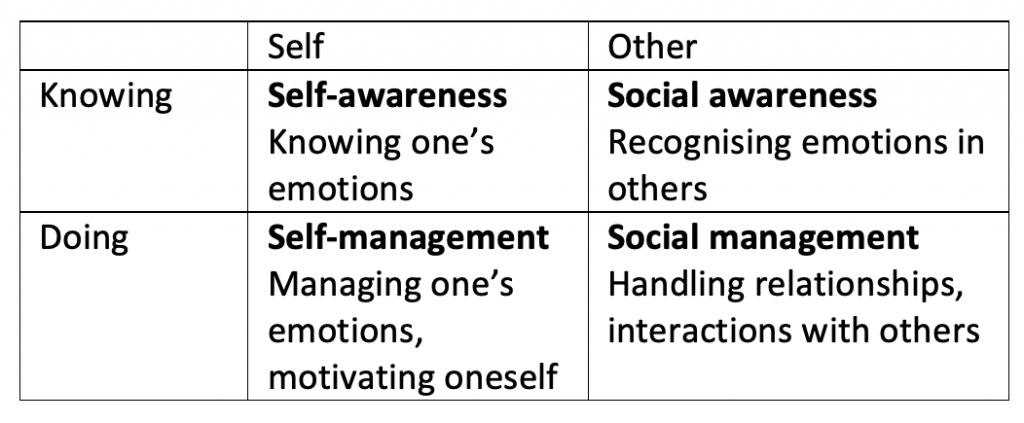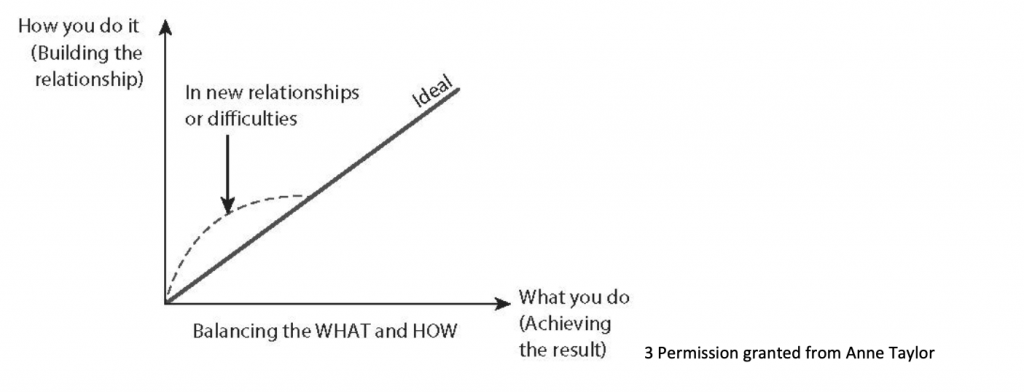Leaders need to be both head smart and heart smart for continued success and satisfaction, says Anne Taylor
When I did my business degree back in the 1980s it covered accounting, strategy, finance, operations, organisational behaviour, ethics, HR and more. Psychology was the closest it got to human understanding and that was in the context of the consumer or buyer or target audience rather than me as a future leader. It didn’t cover people skills, emotional intelligence (EQ) or soft skills explicitly.
It didn’t cover me as a human being who was aspiring to be a leader of other human beings in business.
What are soft skills?
Soft skills are the skills used to interact with others (at work, school or home). They are the skills you use to build and maintain positive and productive relationships with people. Soft skills have their roots in EQ.

Some specific soft skills are self-awareness, self-managing, listening, showing empathy, coaching, asking questions, giving feedback, building trust, sensing situations and feelings and communicating even if potential conflicts.
Soft skills matter
The cost of underdeveloped soft skills is inefficiency and lost productivity. Not harnessing the team’s creativity can be the difference between a breakthrough innovation and same-old, same-old. Conversely, the upside in increased productivity, engagement and often satisfaction for all involved.
There is plenty of research you can google that shows the importance of EQ. Anecdotally, business managers and leaders face a list of challenges that demand a different way of leading than just facts and deliverables:
- rising intergenerational differences with 5 generations in the workforce,
- increasing stress and emotions of and among staff,
- escalating speed and uncertainty of technology, competition, regulation and consumer needs and wants,
- trying to achieve more with less,
- wanting to feel confident in your interpersonal interactions.
Soft skills, people skills, how you as a leader relate to others combined with analysis, a focus on tasks and driving towards goals and objectives are needed for sustained success.
It starts with you
You are the only constant in all your interactions and the only one you can change (if you want to). The starting point for proficiency in good people skills is knowing yourself – what are you values, preferences in thinking, re-energising and communicating, natural tendencies in decision making, your conditioning, your strengths, weaknesses, and passions. What feedback do you get from others? What type of people do you prefer interacting with and which frustrate you? The types of people you enjoy working with tell you a lot about yourself – they are mirrors for us. Same for those with whom we are impatient or find annoying – they hold up a mirror.
What and how
It’s often not what you do at work (the task, the project, the report) but how you do it that can make or break your success and career. A lot of people quit their jobs because of the relationship with their boss, according to 2019 research from Totaljobs, not because of the company or work. That’s how important relationships are at work.
In part three of my book, the ‘BETWEEN Part’, I explain the concept of balancing the ‘what’ and ‘how’ when interacting with others. It’s not about equality, it’s about having the right mix or proportion depending on the person, the situation and knowing yourself.
The ideal, as illustrated below, is when you can achieve the result while at least maintaining, if not building, the relationship with the people you are interacting when doing the work.

Imagine you have a new boss. You, if you’re like most of my coaching clients, set up a meeting with the new boss to review all the projects you are working on, the status of each, the issues and the next steps. And that’s usually where the meeting ends – all the discussion is about the ‘what’, the work, the results needing to be achieved. Sometimes the boss might ask about your career aspirations and development needs. That’s still about the ‘what’, although a bit better as it’s personal to you.
Ideally with the new boss it would serve you well to have a discussion on the ‘how’ – how do you want to work together to get the best out of both of you? How do you want to communicate, keep each other up-to-date with progress, deal with obstacles? What do you do when you disagree? What level of autonomy do you like, what support do you want from a boss? What would your boss appreciate to make their job easier? How are both of you around positive and constructive feedback – giving and receiving? The answers to those questions inform both of you about your relationship, interaction and how to make it the best for both of you to be working at your best. If you talk about these things early on you set the foundation that makes it easier if issues come up between you.
I believe that leaders need to be both head smart (analytical, logical, task focused) and heart smart (emotionally aware, collaborative) for continued success and satisfaction. Said another way, you need connection (with self and others) to make a contribution (on the business, at work and elsewhere).
What do you know about yourself in terms of soft skills? The strengths and opportunities.
Which of your relationships would benefit from some focus? What is one step you can take to work on it?
Anne Taylor is the Founder and Director of Directions Coaching and has coached at companies that include Lego, Deutsche Bank and L’Oréal, among others. She worked for more than 20 years at P&G and Nestlé across many countries and is still exposed to business academia through her work at London Business School and IMD.
AMBA members can benefit from a discount on Soft Skills Hard Results by Anne Taylor, as part of the AMBA Book Club – click here for details.



